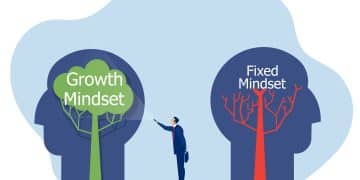The transformative power of workplace mentoring in modern organizations

Workplace mentoring is more than a corporate buzzword — it’s a powerful tool that fosters personal growth, improves retention, and builds a positive and productive work culture.
In today’s competitive professional landscape, companies must look beyond traditional management structures and embrace human-centered development strategies.
Mentoring in the workplace does just that. It empowers employees, strengthens relationships, and encourages continuous learning.
In this in-depth exploration, we will dissect the essence of workplace mentoring, examine its benefits, provide real-world applications, and highlight why mentoring programs have become essential in the U.S. workforce. Check out more details below!
Understanding the core of workplace mentoring
Workplace mentoring refers to a developmental relationship between a more experienced professional (mentor) and a less experienced employee (mentee).
This dynamic is structured yet personalized, focusing on career guidance, personal development, and the transfer of institutional knowledge.
While mentoring is often informal, successful programs are typically well-organized, with clear objectives and regular interaction.
The impact is particularly significant in industries that experience high turnover rates or require ongoing professional development, such as tech, healthcare, and finance.
Why workplace mentoring is more relevant than ever
In an era dominated by hybrid work models and rapid digital transformation, employees crave connection and clarity.
Workplace mentoring provides structure in times of uncertainty, particularly for younger generations who seek guidance and career navigation in evolving environments.
Research shows that Gen Z and Millennials prioritize purpose, learning opportunities, and relationships at work over traditional benefits. Mentoring meets all of these needs simultaneously.
The business case for mentorship programs
Investing in workplace mentoring yields tangible ROI. Companies with strong mentoring cultures report higher employee engagement, better team collaboration, and increased innovation.
When individuals feel valued and supported, they are more likely to take initiative, stay loyal, and become mentors themselves. This virtuous cycle enhances the entire organization.
Mentorship is also an effective way to build a leadership pipeline. Instead of constantly recruiting externally for senior roles, organizations can develop internal talent through mentoring, ensuring that future leaders are well-versed in company values, systems, and goals.
How to implement an effective workplace mentoring program
Creating a mentoring culture starts with intention and alignment. Leaders must first assess their organizational needs, whether it’s retaining young professionals, increasing diversity in leadership, or improving collaboration across departments.
Once goals are clear, the company should establish a structured mentoring program that includes mentor-mentee matching, regular check-ins, goal setting, and feedback mechanisms.
Technology can significantly enhance this process. Mentoring platforms like Chronus offer automated matching algorithms, performance tracking, and resource libraries that streamline the experience.
Utilizing tech not only improves scalability but also ensures consistency across mentoring relationships. Training is another crucial component.
Both mentors and mentees must understand their roles, responsibilities, and expectations. Mentors should be equipped with coaching skills, active listening techniques, and strategies to build trust.
Meanwhile, mentees need to approach the relationship with curiosity, accountability, and respect.

The role of mentoring in DEI (Diversity, Equity, and Inclusion)
Workplace mentoring is one of the most powerful tools for advancing DEI initiatives. By connecting underrepresented employees with experienced mentors, companies can create safe spaces for growth and learning.
These relationships allow mentees to share unique challenges, receive personalized support, and build confidence in navigating their careers.
Mentoring also helps leaders become more inclusive. When mentors engage with individuals from diverse backgrounds, they develop greater empathy and cultural competence. This awareness can influence hiring decisions, team dynamics, and even policy changes.
In short, mentoring is a critical bridge toward a more inclusive workplace.
The psychological impact of mentoring on employees
One of the most overlooked benefits of workplace mentoring is its impact on mental well-being. Employees who feel supported and seen are less likely to experience burnout, anxiety, or imposter syndrome.
Mentoring relationships create psychological safety, which in turn fosters resilience, motivation, and job satisfaction. Mentors act as sounding boards during stressful times, offering perspective and reassurance.
For mentees, having someone who believes in their potential can be a transformative experience. Confidence grows, performance improves, and career trajectories shift positively.
In organizations where feedback is often limited to annual reviews or performance metrics, mentoring offers real-time encouragement and constructive insights, which are essential for long-term development.
Measuring the success of workplace mentoring
To ensure that mentoring programs deliver long-term value, organizations must evaluate their effectiveness.
Key metrics include mentee progression, employee retention, promotion rates, and program participation. Surveys can also provide qualitative data on satisfaction, perceived value, and relationship quality.
Tech platforms offer dashboards that track engagement, match quality, and learning outcomes. This data helps HR leaders fine-tune programs, allocate resources, and report ROI to executives.
Feedback loops are essential. By regularly soliciting input from both mentors and mentees, companies can refine their approach and resolve any issues proactively.
The future of mentoring: what’s next?
As remote and hybrid work becomes permanent in many organizations, virtual mentoring will continue to grow.
Online platforms allow companies to connect mentors and mentees across locations, time zones, and departments, expanding access and diversity.
Moreover, AI will likely play a bigger role in mentor matching, performance analytics, and personalized development plans.
Gamification may also enter the mix, rewarding participants for consistency, goal achievement, and community contributions.
As the workforce becomes increasingly dynamic and diverse, mentoring will need to be flexible, inclusive, and tech-enabled to meet evolving needs.

FAQ about workplace mentoring
- What is workplace mentoring?
Workplace mentoring is a professional relationship where a more experienced employee guides and supports the development of a less experienced colleague.
- Why is workplace mentoring important?
It boosts employee retention, encourages leadership development, supports DEI, and enhances employee engagement.
- Who benefits from mentoring programs?
Both mentors and mentees benefit. Mentees gain guidance, while mentors develop coaching skills and reinforce their own learning.
- Is mentoring only for new employees?
No. While it’s helpful during onboarding, mentoring supports career progression at every level.
- How can companies start a mentoring program?
Begin by defining goals, selecting a mentoring format, training participants, and using platforms like Chronus for management.
- Can mentoring programs be virtual?
Yes. Virtual mentoring is increasingly popular and allows flexibility, accessibility, and cross-functional pairing.
- How do you measure mentoring success?
Track metrics like retention, promotion, engagement, and feedback from participants to evaluate impact.
- What makes a good mentor?
A good mentor is empathetic, patient, knowledgeable, and committed to the growth of their mentee.
Workplace mentoring is not a trend, it is a cornerstone of modern workforce development. From improving employee engagement to supporting DEI, building leadership pipelines, and enhancing mental well-being, mentoring delivers unmatched value.
When thoughtfully implemented, it fosters a culture of trust, growth, and collaboration that benefits individuals and organizations alike.
To remain competitive in today’s landscape, companies must go beyond policies and perks—they must invest in people.
And there is no better way to do that than through a structured, inclusive, and scalable workplace mentoring program.
We hope the content has been useful. Enjoy and continue on our website to read more posts!





